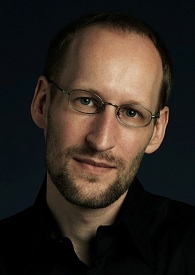The debate on poetry’s responsibility, or lack thereof, to an audience is undoubtedly as old as the art itself. Recent movements have taken noted stances on the “for” and “against” poles, from hermetic aesthetic-worship to cries for accessibility. Critic and author David Orr took up the debate via a review of several new books in Poetry’s April issue — and continued the discussion by responding to my Letter to the Editor in the June issue regarding his essay.
Using releases by Thomas Sayers Ellis, Timothy Donnelly, C.D. Wright, and Eleanor Wilner as points of departure, Orr’s original piece, “Public poetry?”, discusses the various challenges, merits, failings, and nuances of the relationship between an author and his or her readers. “All poetry is public, in the sense that every poem implies an audience,” Orr wrote. He continued: “But some publics are more public than others. Most contemporary poets, for example, address a public that consists only of close friends, professional acquaintances, and a few handy abstractions like the Ideal Reader and Posterity.”
Tackling other aspects of the thorny, long-standing question of “public poetry” as well, Orr raises several insightful points. Yet, as he suggested improvements to Ellis’s and Wilner’s collections in particular, I became intrigued: Given the complexities of a given poet’s level of openness, does issuing judgment on this area imply a cohesive calculus for how successful a poet is (or should be) as a conduit for communication? I fleshed out my concerns further in a letter published in Poetry.
Orr replied to the questions I raised in the same issue, including the one mentioned above. How one gauges a writer’s talent, Orr clarified, should play a role in determining the appropriate scope of his or her audience. Also, in responding to my point that it was unfair to chastise Wilner for a perceived unwillingness to understand war — a stand-in for how poets address social issues in general — he emphasized it wasn’t so much a lack of coherent understanding itself he found deficient, but a lack of evidence that the poet had striven toward such an understanding.
Certainly, the conversation I shared with Orr is a brief blip in a dialectic sure to continue into the foreseeable future. As technological and other advancements increasingly affect not just how we exchange information but also what we exchange, ideas of privacy become amorphous — as do ideas in general. The question of poetry’s place on the spectrum is undoubtedly a vexing but crucial one, a subject whose direction remains to be determined.

